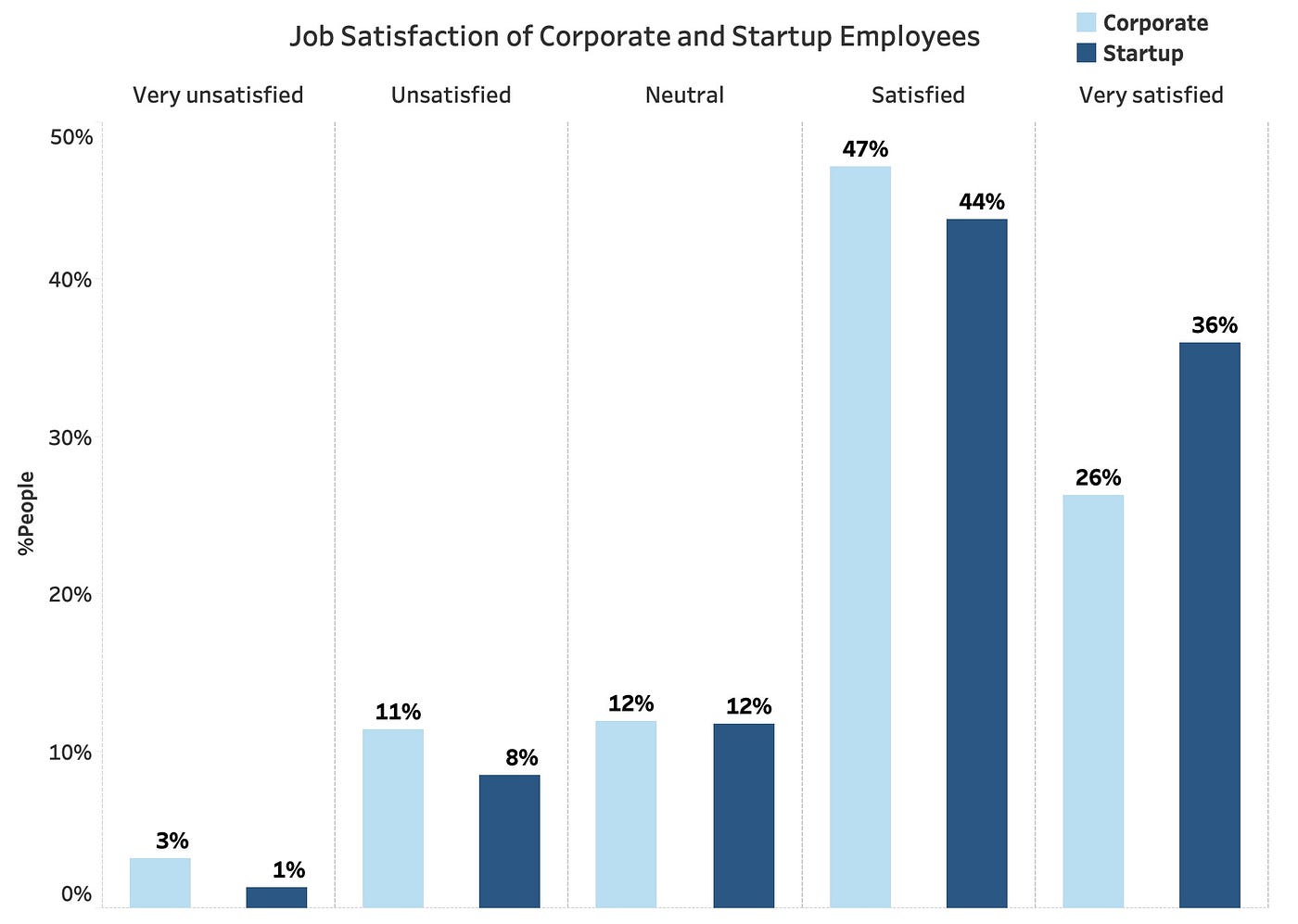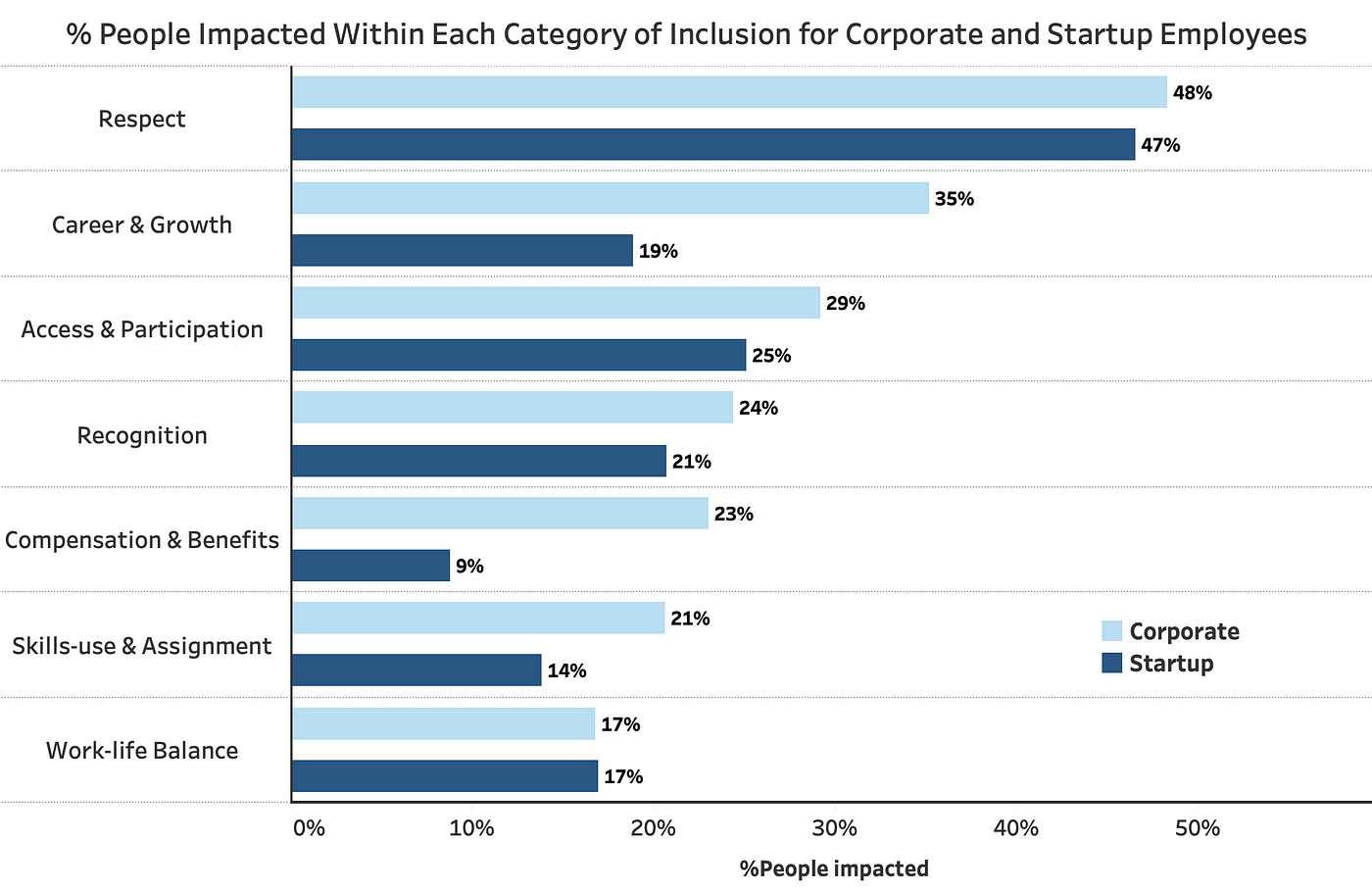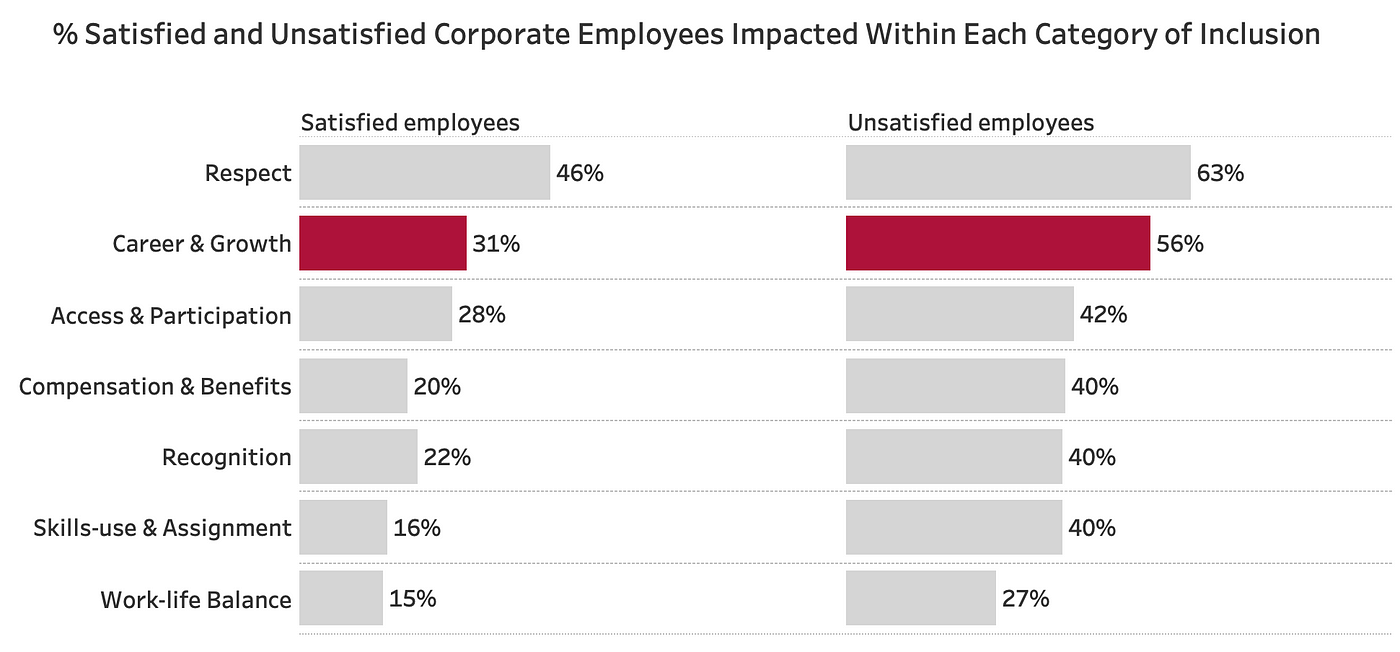Over the past three years, Aleria has collected thousands of experiences of exclusion through our measuring inclusion platform from employees of small startups to global corporations. We started to wonder if and how there were differences in the factors that cause exclusion in the workplace when it comes to company size. We looked at our data through the lens of our patent-pending framework, the Categories of Inclusion, to understand where and how exclusion differs for startup versus corporate employees, as well as what remains consistent no matter how large the organization.
Here is what we found.
- Both startup and corporate employees are generally satisfied at work, though startup employees are more likely to report being Very Satisfied.
- A lack of Respect is the top-cited reason all employees feel excluded across startups and corporations.
- Career & Growth is more of a concern among corporate employees than startup employees.
- Compensation and Benefits is the least common area for startup employees to feel excluded.
On average, corporate employees submitted nearly 40% more experiences of exclusion per person than startup employees. This higher level of exclusion is also reflected in a slightly lower overall job satisfaction. Regardless of company size, the majority of employees reported being satisfied with their current job. We can see from the chart below that 73% of corporate employees and 80% of startup employees are satisfied or very satisfied with their jobs. However, we can see that a significantly higher percentage of startup employees are very satisfied with their jobs.
Additionally, not all corporations are the same. Since our data covers a variety of industries, we can further share that the percentage of satisfied corporate employees varies from 49% in manufacturing to 86% in pharmaceuticals.

When looking at people’s experiences across our Categories of Inclusion, startup employees and corporate employees have a different ranking of where they’re most likely to feel excluded.

Creating a respectful working environment is key. For both corporate and startup employees, Respect is the leading Category of Inclusion for employees feeling excluded in the workplace. But the themes that come out of the experiences are pretty different. Many corporate employees reported feeling disrespected in situations such as being left out of the decision-making process, the way information is shared by leadership in the organization, a lack of appreciation for input and a lack of recognition for the work they had done.
On the other hand, for startup employees, more than one-third of experiences of exclusion related to Respect is about direct interpersonal interactions. As startups usually have a lower power distance and more flat structures, communication among colleagues came up as a common point of exclusion. Additionally, the family culture many startups cultivate may magnify this matter. For example, startup employees reported feeling uncomfortable with the way they are being spoken to, and women are more likely to receive belittling comments and sexist stereotypes.
Money matters, sometimes. According to a survey conducted by AngelList and Blind, the top reasons to work for a startup include having the opportunity to grow at work and acquiring new skills. Knowledge sharing and participation in challenging problem-solving projects are also important considerations that people have when looking for jobs in startups. From the ranking of prevalence by Categories of Inclusion, Compensation and Benefits come out as the least common category for startup employees, with less than 1 in 10 people sharing experiences in this category. This does conform to the general opinion that startup employees are not working just for money and may be willing to forego a higher level of pay in the early stages of a company. Startups often offer perks like flexible work schedules and stock options to offset the potential lower pay and benefits.
On the other hand, the prevalence of exclusion in compensation and benefits is around 1 in 4 for corporate employees. If we look just at corporate employees who are unsatisfied with their current jobs, this number increased to 40%. The most frequently cited experience in this category is being underpaid. The absence of a transparent compensation structure and raise criteria leave employees feeling confused and frustrated.
Corporate employees want career and growth opportunities. Career & Growth ranks second among corporate employees who submitted at least one experience of exclusion. More than one-third of corporate employees shared an experience in this category. By contrast, about one in five startup employees reported incidents in this category.
From the chart below, we can see that among corporate employees who are happy with their jobs, 31% of them have experienced exclusion in the category of Career & Growth, while among unhappy corporate employees, this number is as high as 56%. This considerable difference suggests that career and development is one of the most critical factors that contribute to the job satisfaction of corporate employees, and recent studies have corroborated this. The most common experiences have to do with a lack of career advancement opportunities, being passed over for promotions, low transparency in promotion criteria and a lack of support or mentoring in defining a career path.

We know that employees in startups and large companies have different experiences and therefore face very different challenges when it comes to a feeling of inclusion and belonging at work. From our analysis and data, regardless of company size, creating a working environment that makes employees feel more included will boost employee morale and satisfaction and further translate into productivity and the company’s bottom line. In particular, a focus on increasing respect and appreciation will lead to greater inclusion in any working environment.

